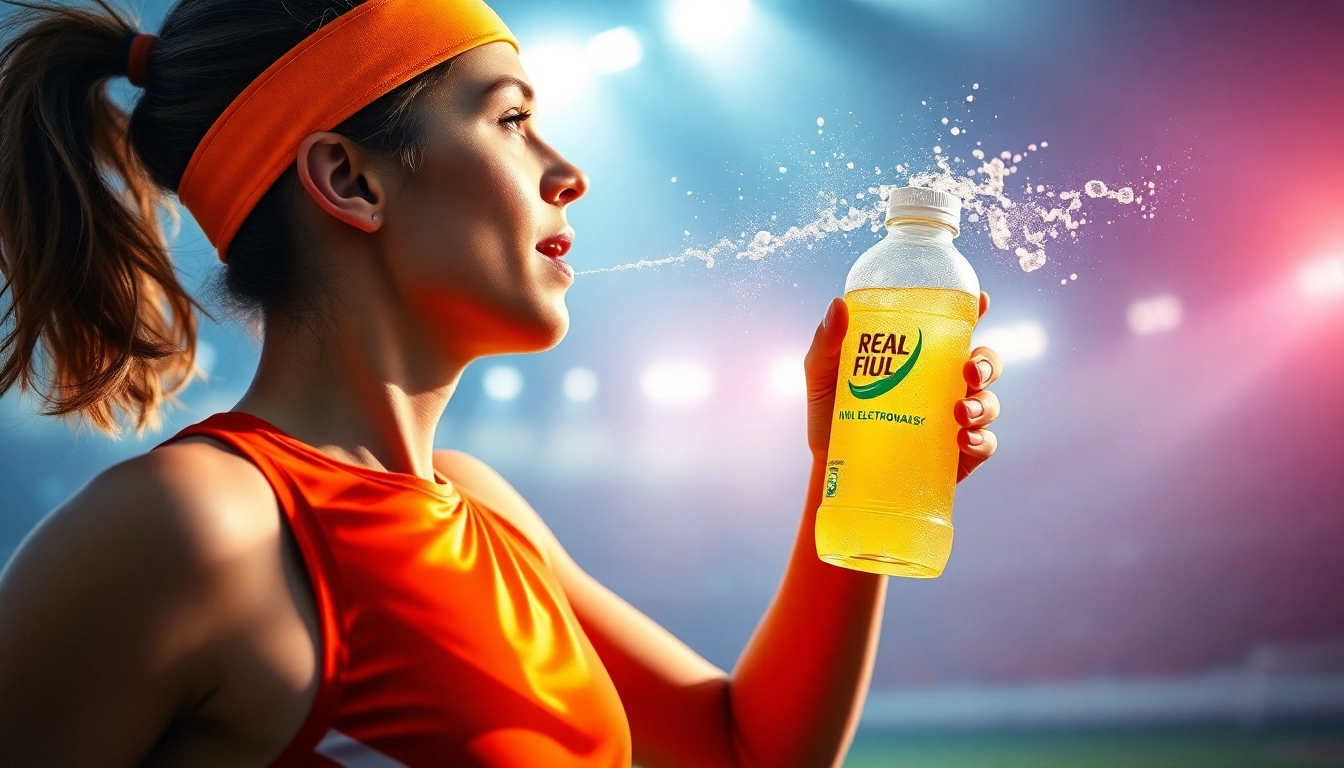What Are Electrolytes?
Electrolytes are critical minerals that carry an electric charge in the body, playing a key role in numerous physiological processes. They are primarily found in the blood and other body fluids, where they help regulate hydration, nerve function, muscle contractions, and the pH level of the blood. Common electrolytes include sodium, potassium, calcium, bicarbonate, magnesium, chloride, and phosphate. Their electrical charges help initiate and conduct the electrical impulses that are essential for muscle contractions and nerve function.
The importance of electrolytes cannot be overstated, particularly for individuals who engage in strenuous physical activity, experience illness, or live in high-temperature environments. An adequate supply of electrolytes is crucial to sustaining bodily functions and performance.
The Role of Electrolytes in the Body
Electrolytes have several vital roles in maintaining proper body function. They are essential for:
- Maintaining Fluid Balance: Electrolytes help regulate fluid levels within and outside of cells, ensuring that the body’s tissues remain adequately hydrated.
- Nerve Function: Electrolytes enable nerves to transmit signals effectively. They facilitate the movement of electrical impulses, which are critical for communication between the brain and different parts of the body.
- Muscle Function: The contraction and relaxation of muscles depend on the balance of electrolytes. For instance, an essential role of calcium is in initiating muscle contractions, whereas potassium assists in muscle relaxation.
- Regulation of Blood pH: Electrolytes help maintain the body’s acid-base balance, which is crucial for many enzymatic and metabolic processes.
Common Types of Electrolytes
Different types of electrolytes perform unique functions in the body. The most common include:
- Sodium: This is the primary electrolyte involved in maintaining fluid balance and blood pressure control.
- Potassium: Vital for proper heart function, potassium helps regulate heartbeat and muscle contractions.
- Calcium: Best known for its role in building and maintaining bones, calcium also plays a critical part in muscle function and neurotransmission.
- Chloride: Working closely with sodium, chloride aids in maintaining fluid balance and is essential for digestion.
- Magnesium: This electrolyte is crucial for over 300 biochemical reactions in the body, including those involved in muscle and nerve function.
How Electrolytes Function
Electrolytes function through the movement of ions in body fluids and tissues. They dissociate in water into positively charged ions (cations) and negatively charged ions (anions), establishing an electric potential difference across cell membranes. This potential is what allows for the generation of electrical impulses necessary for cell signaling throughout the body.
The physiological importance of each electrolyte can be illustrated by considering what happens in their absence or excess. For instance, a deficiency in sodium can lead to hyponatremia, characterized by symptoms like confusion, seizures, and muscle cramps, while hyperkalemia, caused by excess potassium, can lead to heart rhythms’ disturbances.
Signs of Electrolyte Imbalance
Electrolyte imbalances can arise due to various factors such as dehydration, excessive sweating, certain medications, kidney issues, and underlying health conditions. Recognizing the signs of imbalance is crucial for prompt intervention.
Symptoms to Watch For
Some common symptoms indicating an electrolyte imbalance include:
- Fatigue: Unexplained tiredness can often stem from improper levels of electrolytes.
- Mental Confusion: Changes in cognitive function can occur when sodium levels drop.
- Muscle Cramps: Commonly due to low potassium, muscle cramps can be very painful.
- Nausea and Vomiting: These symptoms may be linked to imbalances in electrolytes like magnesium and potassium.
- Increased Thirst: This is a natural symptom indicating that the body requires more fluids to restore balance.
Causes of Electrolyte Imbalance
Electrolyte imbalances can be caused by several conditions and behaviors:
- Dehydration: One of the most common causes, especially in hot weather or following intense exercise without adequate fluid replacement.
- Chronic Diseases: Conditions like diabetes or kidney disease can disrupt electrolyte levels.
- Dietary Deficiencies: A diet lacking in fruits, vegetables, and dairy can contribute to lower electrolyte levels.
- Medications: Certain medications, such as diuretics, can increase electrolyte losses.
Effects on Physical Performance
The effects of electrolyte imbalance on physical performance can be profound. Athletes may experience decreased endurance, impaired muscle function, and higher risks of injury. For instance, a study demonstrated that a drop in sodium levels could lead to a reduction in strength and endurance during workouts.
Understanding these effects emphasizes the importance of maintaining a balanced intake of electrolytes, particularly for those engaging in rigorous physical activity.
Natural Sources of Electrolytes
Incorporating foods rich in electrolytes is essential for maintaining optimal health. Many natural sources of electrolytes can be easily included in your diet.
Foods Rich in Electrolytes
Some of the best dietary sources for each key electrolyte include:
- Potassium: Bananas, oranges, potatoes, spinach, and avocados are excellent sources of potassium.
- Sodium: Naturally found in table salt and processed foods; however, caution is advised due to its relationship with hypertension.
- Calcium: Dairy products, leafy greens, and fortified alternatives provide rich sources of calcium.
- Magnesium: Almonds, spinach, and whole grains come packed with magnesium.
- Chloride: Often consumed via sodium chloride (table salt), it can also be found in lettuce and olives.
Electrolyte Drinks: What to Choose
For quick replenishment, electrolyte drinks can be beneficial, especially following intense exercise or illness. Here are some popular options:
- Coconut Water: A natural source of electrolytes, it contains potassium and sodium.
- Sports Drinks: Designed for athletes, these are formulated to restore electrolytes lost during physical activity.
- Electrolyte Tablets: These dissolve in water and provide an easy way to replenish electrolytes on the go.
- Homemade Electrolyte Drinks: Simple recipes can be made using water, salt, and sugar to create your own balance.
Hydration and Electrolyte Balance
Proper hydration is closely tied to maintaining electrolyte balance. It’s essential to consume enough fluids throughout the day, especially during physical activities. Drinking plain water is often sufficient, but electrolyte-filled drinks should be consumed after prolonged exercises or sweat-inducing activities.
Additionally, recognizing the signs of adequate hydration—such as clear urine—can help determine when and how much you need to drink.
Electrolyte Supplements: When and Why?
In certain situations, like a high level of physical activity, prolonged illness, or specific dietary restrictions, electrolyte supplements may provide necessary support.
Types of Electrolyte Supplements
Electrolyte supplements come in various forms, including:
- Powders: These are mixed with water for consumption, allowing customized concentrations.
- Capsules/Tablets: Convenient for on-the-go replenishment, they provide essential minerals without added sugars.
- Ready-to-drink formulations: Bottled drinks that offer immediate electrolyte replenishment often found in sports nutrition stores.
Benefits of Supplementation
Supplementation can be particularly beneficial in certain scenarios:
- After illness: Replenishing lost electrolytes can speed recovery.
- Athletic Training: Providing a quick source of electrolytes enhances endurance and minimizes fatigue.
- Dietary Restrictions: For individuals who follow restrictive diets or have high electrolyte needs, supplements can help fill nutritional gaps.
Potential Risks and Considerations
While electrolyte supplements can be beneficial, there are considerations to bear in mind:
- Overconsumption: Excessive intake can lead to imbalances.
- Quality Control: Not all supplements are created equal; it’s essential to choose reputable brands.
- Consultation with Healthcare Providers: Always consult with a doctor before starting any new supplement regimen, especially if there are pre-existing health conditions.
Maintaining Electrolyte Balance in Daily Life
To maintain electrolyte balance, consider the following best practices:
Best Practices for Athletes
Athletes should prioritize hydration and electrolyte replenishment before, during, and after exercise. Key strategies include:
- Drinking fluids infused with electrolytes during workouts longer than an hour.
- Including electrolyte-rich foods in meals throughout the day.
- Monitoring body weight before and after exercise sessions to assess fluid losses.
Managing Electrolytes During Illness
During illness, especially with symptoms like vomiting or diarrhea, it’s crucial to replenish lost electrolytes. Consider these practices:
- Consuming oral rehydration solutions or broths.
- Avoiding strenuous activities until comfortable and well-hydrated.
- Gradually introducing solid foods that are electrolite-dense, such as bananas and bone broth.
Daily Hydration Strategies
Consistent hydration throughout the day is vital for maintaining electrolyte levels. Here are some effective strategies to ensure adequate intake:
- Setting a hydration goal based on activity level and environmental conditions.
- Carrying a water bottle to monitor fluid intake.
- Incorporating hydrating foods like fruits and vegetables into your diet.














Leave a Reply